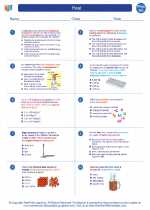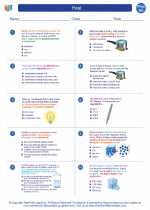Engineering
Engineering is the application of scientific and mathematical principles to design and build technology, structures, and systems that solve practical problems and improve the quality of life.
Branches of Engineering
- Mechanical Engineering
- Electrical Engineering
- Civil Engineering
- Chemical Engineering
- Computer Engineering
- Biomedical Engineering
- Environmental Engineering
Key Concepts in Engineering
Some key concepts in engineering include:
- Statics and Dynamics
- Mechanics of Materials
- Thermodynamics
- Electromagnetism
- Control Systems
- Materials Science
- Fluid Mechanics
Study Tips for Engineering Students
Here are some tips for studying engineering:
- Understand the fundamentals: Build a strong foundation in mathematics, physics, and chemistry.
- Practice problem-solving: Engineering involves a lot of problem-solving, so practice solving problems regularly.
- Work on projects: Get involved in hands-on projects to apply theoretical knowledge to real-world applications.
- Stay updated: Keep up with the latest developments in your field of engineering through journals, conferences, and online resources.
- Collaborate with peers: Work in study groups and collaborate with classmates to learn from each other and tackle challenging problems together.
Career Opportunities in Engineering
Engineers have a wide range of career opportunities in various industries such as aerospace, automotive, manufacturing, energy, electronics, construction, and healthcare. They can work as design engineers, project managers, research scientists, consultants, and educators.
[Engineering] Related Worksheets and Study Guides:
.◂Physics Worksheets and Study Guides High School. Heat
The resources above cover the following skills:
PHYSICAL SCIENCE (NGSS)
Energy
Students who demonstrate understanding can:
Create a computational model to calculate the change in the energy of one component in a system when the change in energy of the other component(s) and energy flows in and out of the system are known.
Develop and use models to illustrate that energy at the macroscopic scale can be accounted for as either motions of particles or energy stored in fields.



